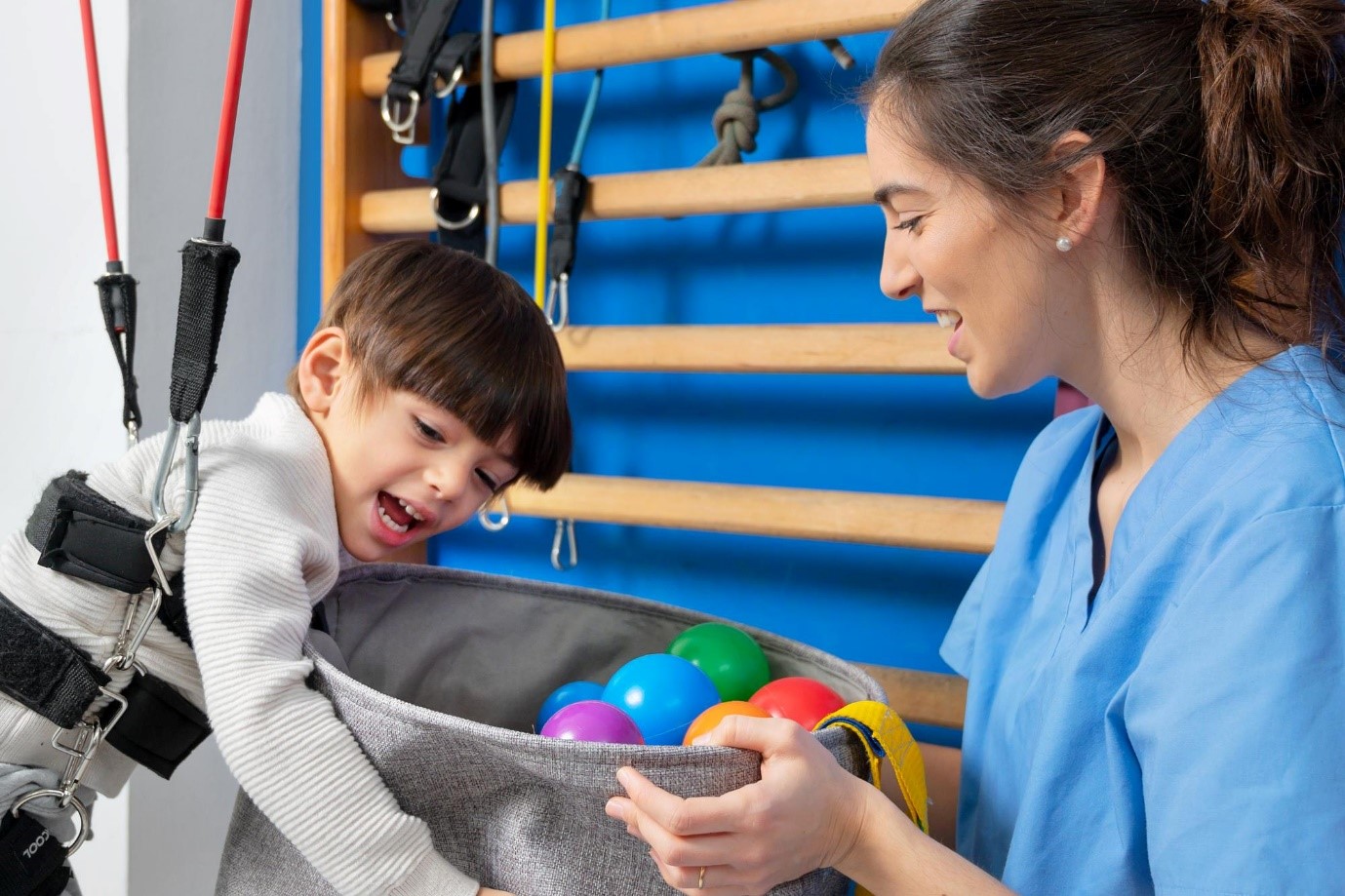
Cerebral Palsy (CP) is a neurological condition that affects thousands of children worldwide. As a parent of a child with CP, you recognize the distinctive challenges and unique lifestyle accompanying caring for your precious child. While medical interventions and therapies are essential, several home-based treatments can significantly benefit your child’s overall well-being and development. In this blog, we will explore ten must-try therapies for children with CP.
Supporting Parents of Children with CP
- Emotional Journeys: Parents witness their child’s resilience, overcoming physical limitations and developmental delays, and embark on an emotional journey filled with love, determination, and admiration.
- Breaking Barriers: Parents demonstrate unwavering determination in advocating for accessibility in public spaces, striving for inclusion, and equal opportunities for their child’s participation in daily activities and community life.
- Nurturing Connections: Despite the demanding nature of caregiving, parents seek social interactions and support networks, finding solace and strength in connecting with others who understand their journey.
- Educational Empowerment: Parents become fierce advocates for their child’s educational rights, working within the school system to ensure appropriate accommodations and an inclusive learning environment.
- Balancing Caregiving: While prioritizing their child’s well-being, parents manage the physical demands of caregiving, finding moments for self-care amidst the responsibilities, embodying resilience and love.
Recognizing and honoring the experiences of parents is essential as we work together to create comprehensive support systems that uplift both the child with CP and their remarkable parents.
Must-Try Therapies for Children with CP
Therapies can play a crucial role in supporting children with cerebral palsy (CP) in their developmental journey. While it’s essential to consult with healthcare professionals for a comprehensive treatment plan, there are several must-try therapies that can complement clinical interventions. These therapies focus on enhancing motor skills, communication, and overall well-being. Here are some therapies worth considering:
Physical Therapy
Physical therapy plays a crucial role in managing CP symptoms. Engaging your child in targeted exercises and activities can improve their strength, flexibility, and motor skills. According to the Cerebral Palsy Foundation, physical therapy has been shown to enhance mobility and reduce muscle stiffness in children with CP. Consulting a licensed physical therapist will ensure the exercises are tailored to your child’s needs.
Occupational Therapy
Occupational therapy focuses on enhancing your child’s everyday functional skills. Occupational therapists help children with CP develop independence in dressing, eating, and writing. According to a study published in the Journal of Child Neurology, occupational therapy interventions have significantly improved hand function and daily living skills among children with CP.
Speech and Language Therapy
Many children with CP struggle with speech and communication. Speech and language therapy can provide vital support in improving your child’s communication skills and overall language development. Research conducted by the American Speech-Language-Hearing Association indicates that early intervention speech therapy significantly enhances communication outcomes for children with CP.
Assistive Devices and Technology
Incorporating assistive devices and technology into your child’s daily routine can significantly enhance their independence and overall quality of life. From mobility aids to communication devices, these tools offer valuable support. The Centres for Disease Control and Prevention reports that assistive technology interventions have resulted in positive outcomes for children with CP, empowering them to engage in activities they may otherwise find challenging.
Hydrotherapy
Hydrotherapy, or aquatic therapy, involves therapeutic exercises conducted in water. The buoyancy of water reduces the impact on the body, making it an excellent therapy option for children with CP. According to a systematic review published in the Journal of Paediatric Rehabilitation Medicine, hydrotherapy has been associated with improved motor function and reduced muscle tone in children with CP.
Sensory Integration Therapy
Sensory integration therapy focuses on helping children with CP process and responds appropriately to sensory information. By providing sensory experiences through structured activities, this therapy aims to improve their sensory processing abilities. A study published in the journal Disability and Rehabilitation shows that sensory integration therapy can positively impact sensory perception and functional performance in children with CP.
Music Therapy
Music therapy can be a powerful tool for children with CP, promoting physical, emotional, and cognitive development. Musical activities can help improve coordination, stimulate speech, and enhance social interaction. The American Music Therapy Association supports using music therapy as a complementary approach for children with CP.
Yoga and Mindfulness
Yoga and mindfulness techniques can offer numerous benefits for children with CP. These practices help improve body awareness, coordination, and relaxation. A study published in Developmental Medicine & Child Neurology found that yoga therapy improved balance, coordination, and functional skills in children with CP.
Massage Therapy
Massage therapy has been recognized as a beneficial intervention for relieving muscle stiffness and discomfort in children with cerebral palsy (CP). It promotes improved blood circulation, relaxation, and overall well-being. A research review published in the journal Paediatric Physical Therapy, supports the positive effects of massage therapy for children with CP.
Equine-Assisted Therapy:
Equine-assisted therapy involves interactions between individuals with cerebral palsy and horses. This therapy can provide numerous physical, emotional, and sensory benefits. The rhythmic motion of the horse stimulates muscle control and coordination while promoting relaxation. Research published in the Journal of Alternative and Complementary Medicine suggests that equine-assisted therapy can improve balance, posture, and overall well-being in children with CP.
Explore various engaging and therapeutic online games designed specifically for children with cerebral palsy. Enhance your child’s development and make therapy sessions fun with interactive games. Discover more at WonderTree’s Online Games Children with Cerebral Palsy today!